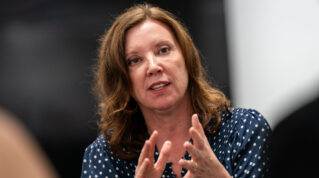Much has been made in recent months in Schools Week and elsewhere about the dangers of ‘unregistered’ alternative provisions (APs). Few would disagree that these have too little oversight. However, sensationalist coverage belies the rather uncomfortable truth that many very good specialised education settings operate outside the Ofsted framework.
The government has committed to publishing a set of national standards applicable to all AP settings by the end of 2025. Given a looming general election could result in a change of government by the end of 2024, we might be easily forgiven for wondering whether this target is likely to be met.
Last month’s Thematic Review of Alternative Provision in Local Areas in England certainly makes for uncomfortable reading. However, as a former senior leader in AP with experience in maintained and non-maintained parts of the sector, headlines that emphasise the (admittedly, very real) dangers of poorly-run provisions or illegal schools usually cause me some frustration.
There is excellent work being done by staff and leaders in many extraordinarily good ‘unregistered’ APs to support some of society’s most vulnerable children and young people. Usually, these pupils have been excluded from all other settings. Their time in AP may be their last chance to get an education that prepares them for adult life.
Given government estimates the lifetime cost of truancy at £72,000 per pupil, the value of this work cannot be overstated. So the narrative that ‘unregistered’ AP is more dangerous and less effective than maintained provision runs a number of risks.
It leaves the unregistered/specialised part of the sector with somewhat of an inferiority complex, but more importantly it leaves certain questions unanswered: How do we avoid losing the flexibility and innovation that makes AP so successful if we are forced to move further and further towards a school model? And how can we keep what specialised APs do so well while bringing them in line with a national framework for best practice?
Sensationalist coverage belies an uncomfortable truth
Working outside of the maintained part of the education landscape can be incredibly isolating. This isolation is a source of creativity for leaders who find themselves unfettered by the constraints facing schools. However, settings are at risk from insular ways of working.
Professional networks could help to mitigate the risk, but these are few. Specialised APS rarely if ever access funded CPD or other resources from local authorities or central government. And since no two settings operate the exact same way, it can be really tempting to consider oneself too unique to benefit from visiting or learning from other settings. In any case, the sheer volume of complex intervention work they do often makes CPD seem an unaffordable luxury.
‘Unregistered’ APs can offer a bespoke curriculum, often marrying vocational or functional qualifications with social-emotional learning to provide a lifeline for their students. I have seen ingenious curriculum design and amazing teaching in these settings. However, the same flexibility can create a curriculum offer that is too diffuse, too esoteric, too hard to track, or doesn’t allow pupils to access next destinations.
The recent publication of the findings from the Alternative Provision Specialist Taskforces pilot highlights the positive potential of hubs located within alternative provisions to draw on a multidisciplinary team to work with pupils and their families. The report emphasises the benefits of collaboration in the AP context, and reinforces that AP leaders need to look outwards as well as inwards.
Sadly, the pilot is not a model that specialised education settings can access funding to deliver. But it does provide a potential blueprint for staffing the specialist provisions of the future given that ‘unregistered’ APs do not need to adhere to the same staffing structures or norms as their maintained counterparts.
I share concerns about ‘unregistered’ APs operating illegally or dangerously. There are clearly gaps in governance made worse by a desperate lack of places for excluded pupils, and bringing them under the eye of Ofsted may be part of the solution.
Whatever happens though, there is a lot to learn about best practice from these settings. Let’s make sure we don’t throw the baby out with the bathwater.









Your thoughts